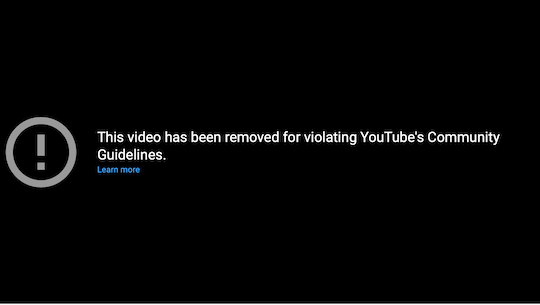From: Marshall Goldsmith from The Marshall Goldsmith Newsletter <marshallgoldsmith@substack.com>
Date: Thu, Jun 24, 2021 at 7:01 AM
Subject: What Does Uncoachable (and Unchangeable) Look Like?
To: <stevescott@techacq.com>
My mission is simple. I want to help successful people achieve positive, lasting change in behavior; for themselves, their people, and their teams. I want to help you make your life a little better. Thank you for subscribing! Life is good. Even if you are the best coach in the world, if the person you are coaching shouldn't be coached, the coaching isn't going to work. The good news is that the "uncoachables" are easier than you think to spot. How do you know when someone is uncoachable? How do you detect a lost cause? Following are four indicators that you are dealing with one of these people: 1. She doesn't think she has a problem. This successful adult has no interest in changing. Her behavior is working fine for her. If she doesn't care to change, you are wasting your time! Let me give you an example of a nice woman who didn't think she had a problem. My mother, a lovely woman and much-admired first-grade teacher, was so dedicated to her craft that she didn't draw the line between inside and outside the classroom. She talked to all of us, including my father, in the same slow, patient manner, using the same simple vocabulary that she used with her six-year-olds every day. One day as she graciously and methodically corrected his grammar for the millionth time, he looked at her, sighed, and said, "Honey, I'm 70 years old. Let it go." My father had absolutely no interest in changing. He didn't perceive a problem. So no matter how much, how hard, or how diligently she coached, he wasn't going to change. 2. He is pursuing the wrong strategy for the organization. If this guy is already going in the wrong direction, all you're going to do with your coaching is help him get there faster. 3. They're in the wrong job. Sometimes people feel that they're in the wrong job with the wrong company. They may believe they're meant to be doing something else or that their skills are being misused. Here's a good way to determine if you're working with one of these people. Ask them, "If we shut down the company today, would you be relieved, surprised, or sad?" If you hear 'relieved,' you've got yourself a live one. Send them packing. You can't change the behavior of unhappy people so that they become happy: You can only fix behavior that's making people around them unhappy. 4. They think everyone else is the problem. A long time ago I had a client who, after a few high-profile employee departures, was concerned about employee morale. He had a fun, successful company and people liked the work, but feedback said that the boss played favorites in the way he compensated people. When I reported this feedback to my client, he completely surprised me. He said he agreed with the charge and thought he was right to do so. First off, I'm not a compensation strategist and so I wasn't equipped to deal with this problem, but then he surprised me again. He hadn't called me to help him change; he wanted me to fix his employees. It's times like these that I find the nearest exit. It's hard to help people who don't think they have a problem. It's impossible to fix people who think someone else is the problem. My suggestion in cases like these? Save time, skip the heroic measures, and move on. These are arguments you can never win! Life is good. Marshall. Thank you for reading The Marshall Goldsmith Newsletter. |




 Dear Daily Prophecy Reader,
Dear Daily Prophecy Reader,








